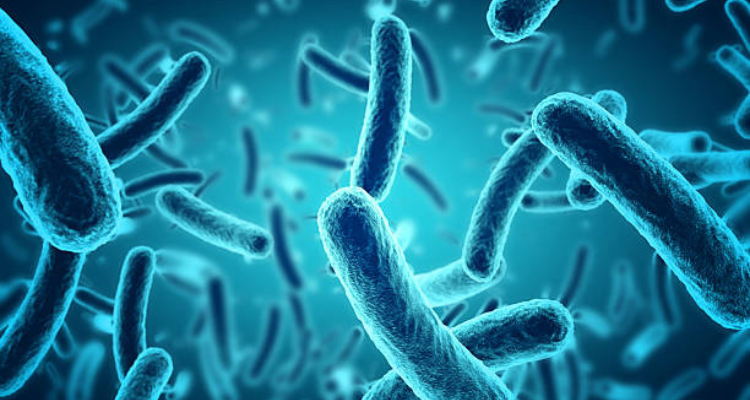While antibiotics are essential for managing bacterial infections, they are known to disrupt the balance of gut microbiota by reducing microbial diversity and facilitating the overgrowth of harmful bacteria, such as Clostridium difficile, which is associated with more severe cases of antibiotic-associated diarrhea. These disruptions can persist for extended periods, affecting gut resilience and leading to chronic dysbiosis. (1)
Antibiotics are a cornerstone of modern medicine, crucial for treating bacterial infections and saving lives. However, with the growing understanding of the gut microbiome's role in overall health, the negative impact of antibiotics on this delicate ecosystem has become a significant concern.
Impact on the Gut Microbiome
Antibiotics affect the gut microbiome by disrupting the balance of bacteria residing in the gut. Antibiotics target not only bad bacteria but also the beneficial bacteria, leading to a decrease in the diversity of bacteria in the gut. This reduction can affect metabolic functions, the immune system, and gut barrier integrity, which are vital roles performed by a healthy gut microbiome. (2,3)
The gut microbiome's ability to produce short-chain fatty acids that are crucial for maintaining gut health and integrity, can be significantly reduced by antibiotics. Recently, intestinal produced short-chain fatty acids have been shown to affect immunity both directly and indirectly at extraintestinal sites such as the liver, lungs, reproductive tract, and brain.
Differences Between Infants and Adults
Research supports the idea that the gut microbiome is highly dynamic and differs significantly between infants and adults, particularly in how it responds to antibiotics. In infants, whose gut microbiome is still developing, antibiotics can cause pronounced and long-lasting disruptions. This is particularly evident when antibiotics are administered during critical times of microbial colonization, such as the perinatal period. (4)
Disruptions to maternal gut microbiota during pregnancy, especially through antibiotic use, can alter the microbiota passed on to the infant, either through vaginal delivery or breastmilk, leading to changes in immune function and an increased susceptibility to chronic diseases. Studies show that early-life exposure to antibiotics alters the microbial composition, potentially increasing the risk of diseases such as allergies, asthma, and obesity later in life. (5,6)
While the microbiome is more stable in adults, repeated use of antibiotics can significantly disrupt the variety of bacteria in the gut. This can increase the risk of conditions such as C. difficile infection and other gut-related issues. (7)
The Role of Probiotics
Probiotics have gained considerable attention as a strategy to counteract the negative effects of antibiotics on the gut microbiome. When taken in adequate amounts, they can benefit the host by restoring the balance of gut bacteria.
Probiotics aid this process through several mechanisms, such as exclusion of pathogens, production of short chain fatty acids that support gut health, and supporting the immune response.
Clinical Evidence Supporting Probiotics Use with Antibiotics
Clinical evidence has demonstrated that certain probiotics may reduce the risk of antibiotic-associated diarrhea and improve gut health during and after antibiotic use. A meta-analysis of randomised controlled trials has shown that probiotics, particularly certain strains, may be effective in preventing antibiotic-associated diarrhea and can support gut microbiome recovery. (8,9) The general recommendation is to take probiotics during and after the course of antibiotics to maximize their beneficial effects. (8)
During Antibiotic Course: Probiotics can help maintain gut microbial balance by replenishing beneficial bacteria.
Post-Antibiotic Course: Continuing probiotics after antibiotic therapy can aid in faster recovery of the gut microbiome.
For any advice and support when it comes to gut health and probiotics, speak to our expert pharmacy team today!
- Liu, Q., Zhong, H., Zhang, Q., & Xu, Z. (2023). Antibiotics and antibiotic-associated diarrhea: A real-world disproportionality study of the FDA adverse event reporting system from 2004 to 2022. BMC Pharmacology and Toxicology, 24, 29. https://doi.org/10.1186/s40360-023-00710-w
- Carabotti M et al. (2015). The gut-brain axis: interactions between enteric microbiota, central and enteric nervous systems. Ann Gastroenterol;28(2):203-209.
- DeGruttola AK et al. (2016). Current Understanding of Dysbiosis in Disease in Human and Animal Models. Inflamm Bowel Dis;22(5):1137-50.
- Mann, E.R., Lam, Y.K. & Uhlig, H.H. Short-chain fatty acids: linking diet, the microbiome and immunity. Nat Rev Immunol 24, 577–595 (2024). https://doi.org/10.1038/s41577-024-01014-8
- Nyangahu, D.D., Lennard, K.S., Brown, B.P. et al. Disruption of maternal gut microbiota during gestation alters offspring microbiota and immunity. Microbiome 6, 124 (2018). https://doi.org/10.1186/s40168-018-0511-7
- Ramirez J, Guarner F, Bustos Fernandez L, Maruy A, Sdepanian VL and Cohen H (2020) Antibiotics as Major Disruptors of Gut Microbiota. Cell. Infect. Microbiol. 10:572912. doi: 10.3389/fcimb.2020.572912
- NICE CKS. (2021). Diarrhoea antibiotic associated. Accessed online: https://cks.nice.org.uk/topics/diarrhoea-antibiotic-associated/ (September, 2022).
- Goodman C, Keating G, Georgousopoulou E, et alProbiotics for the prevention of antibiotic-associated diarrhoea: a systematic review and meta-analysisBMJ Open 2021;11: doi: 10.1136/bmjopen-2020-043054
- Fernández-Alonso, M., Aguirre Camorlinga, A., Messiah, S. E., & Marroquin, E. (2022). Effect of adding probiotics to an antibiotic intervention on the human gut microbial diversity and composition: A systematic review. Journal of Medical Microbiology, 71(11). https://doi.org/10.1099/jmm.0.001625



